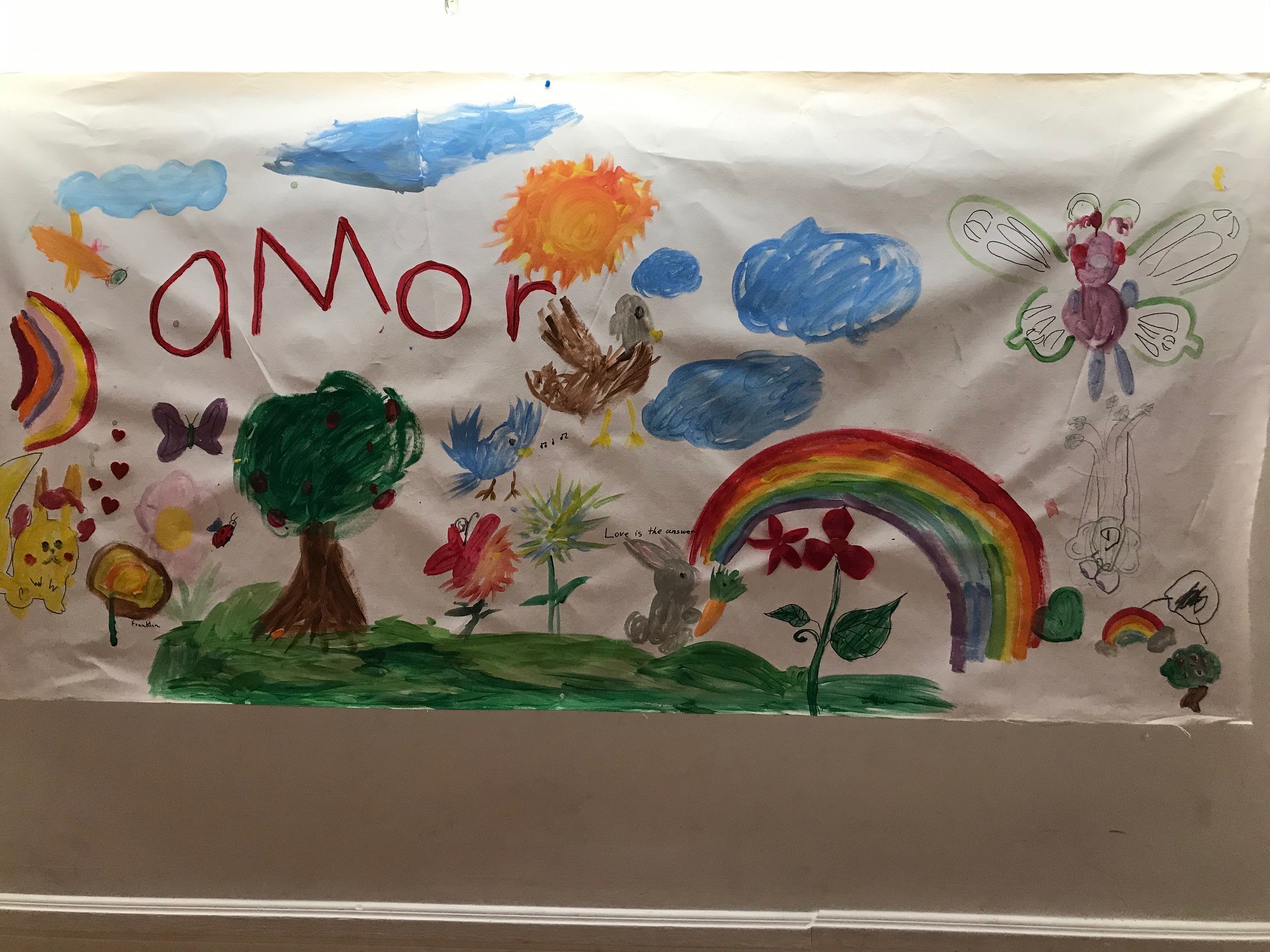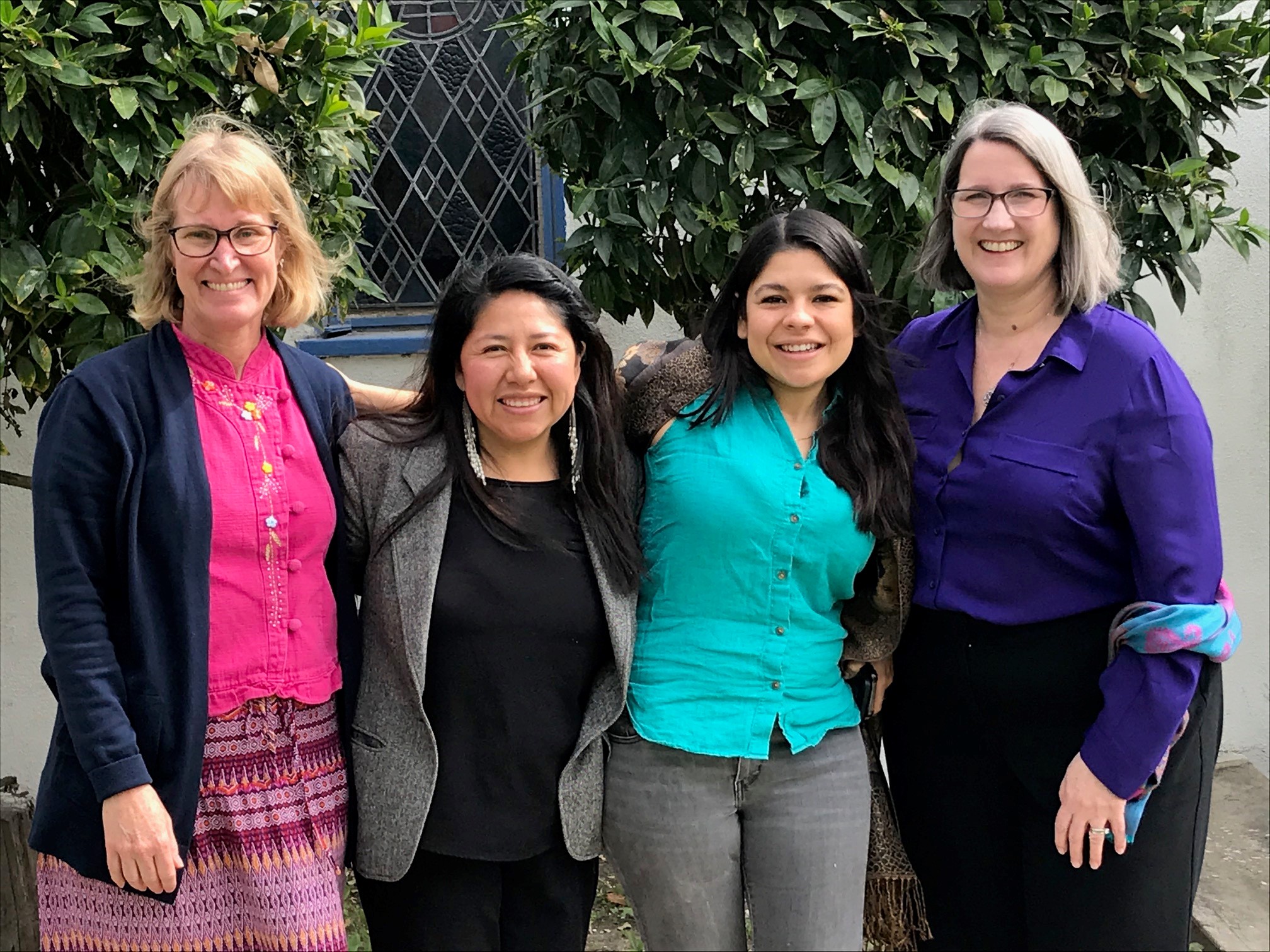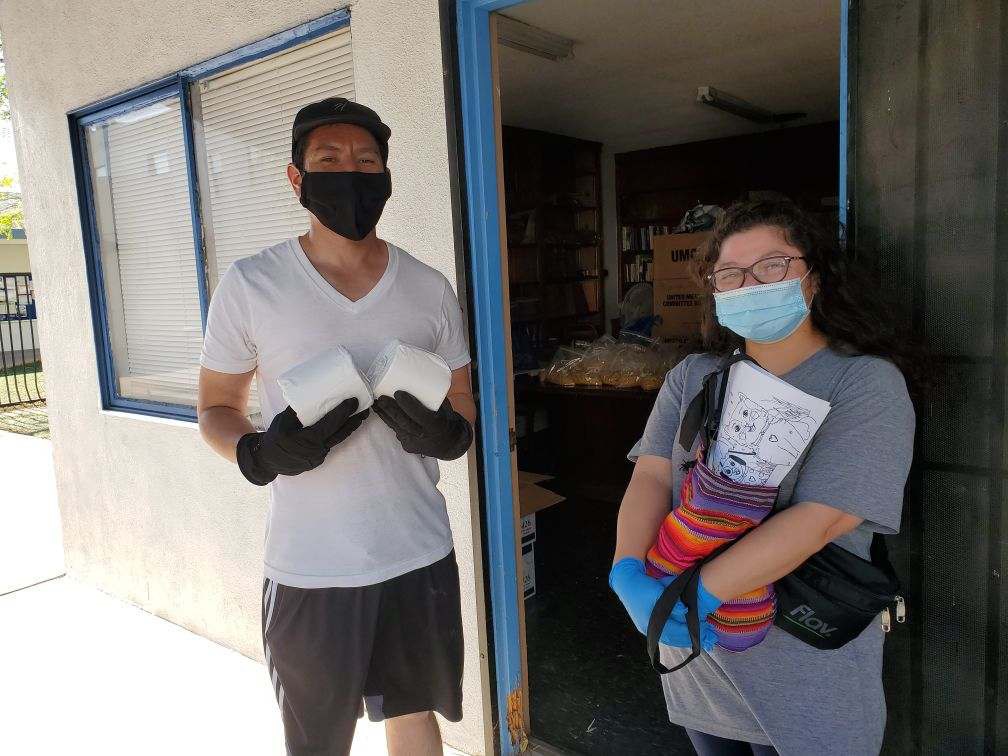Since July 26, 2015, the San Fernando Valley Refugee Children Center (SFVRCC) has been a place of welcome and healing to the hundreds of unaccompanied children who have made the perilous journey from Central America to seek refuge in Los Angeles County. SFVRCC is dedicated to helping children and families transition to life in the United States by not only providing them with the necessary services to survive, but also by connecting them with individuals who went through similar experiences yet found ways to create their own happy family, home, career, and life.
Trauma Therapist and SFVRCC Volunteer, Aimee Porter, has been volunteering at the Center on Sundays for more than two years, providing trauma counseling sessions for teens and parents. Primarily focusing on children 2–11 years old, she coordinates activities for groups of 15–18 kids which support and engage them—including art, sports, games, music, and creative free play. Because parents and youth each need private time to process their trauma and grief, she and her fellow counselors try to create a really fun place which encourages the children’s participation.
Ms. Porter recalls a day when those activities allowed one child to share a bit about his experiences. “We met at picnic tables outside, and children created watercolor paintings where we included words like “love” and “family”—even “unity” and “peace.” For the first time, one child opened up about his journey to the US at the age of five after his father was killed by gangs. He talked about feeling so tired of walking, feeling hungry and thirsty and sad. He said along the way good people would help them while others turned them away. He said his legs had never been so tired. I commended him on how strong and brave he had to be during this time and told him I was so glad that he was here now. Other kids started to share things with each other about how the gangs had targeted their families and how it wasn’t safe to live in their original homes anymore.”
Because the COVID-19 pandemic closed down much of society, the SFVRCC has had to work harder and more creatively to continue supporting their vulnerable clients. Staying connected; continuing to provide mental, emotional, and legal support; helping meet food and other basic needs; and financially assisting families are crucial areas in which the SFVRCC staff and volunteers have been called upon to help—all while staying at home themselves.
Connection remains vital, so the SFVRCC staff calls all of their clients weekly, which is a big but important task. Telehealth sessions led by their volunteer therapists for group and individual therapy are ongoing.
“The SFVRCC continues to serve refugee and asylum-seeking youth and families with young children during the pandemic in some very heartfelt ways. They offer weekly food and toiletry delivery as well as distance trauma counseling services for those most in need.” Ms. Porter said. “During the pandemic, I have had virtual meetings with other trauma specialists about how we can provide continuous support during this difficult time.”
Access to assistance with legal cases, housing, food and other resources continues online and over the phone. An existing partnership with UCLA has been expanded, so that 16 UCLA students are volunteering remotely in various departments of the SFVRCC, including the newly created Food and Basic Needs Relief Department.
This new relief effort is supported by connections made with several organizations and businesses to secure and distribute donations of food and other essential items including hygiene kits. Financial needs for these vulnerable families have increased, so SFVRCC launched an online fundraising campaign in March and in April submitted COVID-19 emergency grant applications to PDA to support a small emergency assistance fund to help fill some of the financial holes these families are confronting, such as utilities, rent, diapers, cleaning supplies and other essential items.
Creating income opportunities for families has led the SFVRCC to support a Refugee Women’s Cooperative program as well. UCLA student intern Melisa summed it up by saying, “With all of the uncertainty these past two months, the SFVRCC continues to offer hope, comfort, and love for the Central American refugees who have made their way to the San Fernando Valley. While remaining true to its mission during this global pandemic, the organization has also worked relentlessly to help lighten the burdens of its clients.”
Kari, an SFVRCC client said, “The SFVRCC gives me a bag of food every Friday and today they gave me financial aid from the emergency fund, which helped me a lot because I needed it.”
Addy, another SFVRCC client, continued, “They assisted me with a financial gift that covered a portion of my rent this month.”
KC Porter, a volunteer Musician and Translator at SFVRCC shared, “We just helped purchase food in bulk and when my family and I delivered it to the SFVRCC campus, there was a wonderful team of people already in place
accepting the food, another working on distributing food, and Pastor Fred, Mayra, Alicia, and so many more were there diligently working and helping provide much-needed resources to our dear refugee community”.
Aimee Porter agrees. “It is very touching to see the level of support and caring for this community. The SFVRCC definitely fosters these relationships.”
To learn more about the San Fernando Valley Refugee Children Center and how you can support them, visit their website.
When people of faith step into a new ministry they often don’t know where it will lead. Certainly SFVRCC never imagined the Covid-19 pandemic when they formed in 2015, but the way they have quickly pivoted to support those they serve shows the incredible dedication and imagination of their staff and volunteers. We are thankful that the Presbytery of San Fernando connected PDA with the Center in 2019, just as we are grateful for the gifts from Presbyterian congregations and individuals which allow PDA to provide financial support to such an important ministry.
There is so much we still don’t know about the pandemic, but we do know that it devastates the most vulnerable populations. As we approach World Refugee Day on June 20, we will further cultivate connections with our refugee and immigrant neighbors—who face increasingly treacherous journeys—by sharing updated worship tools and suggested, ongoing activities.


